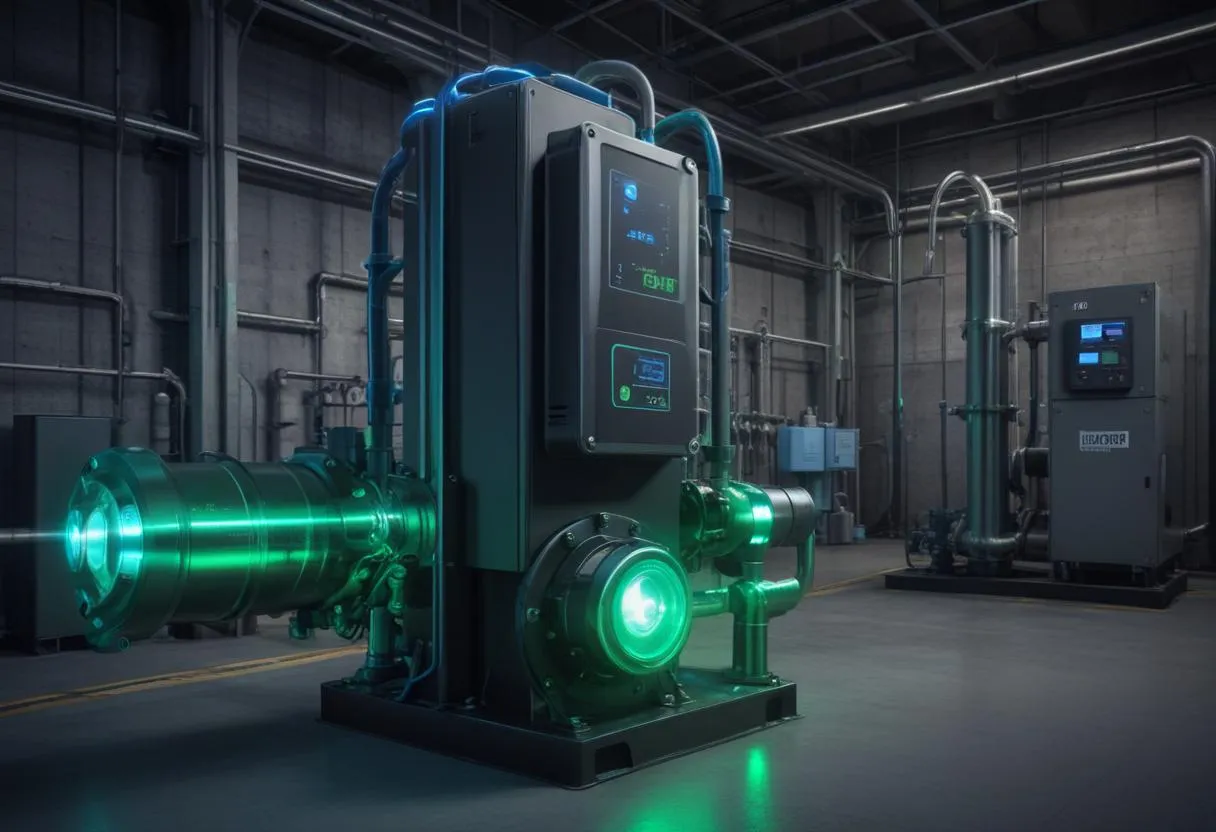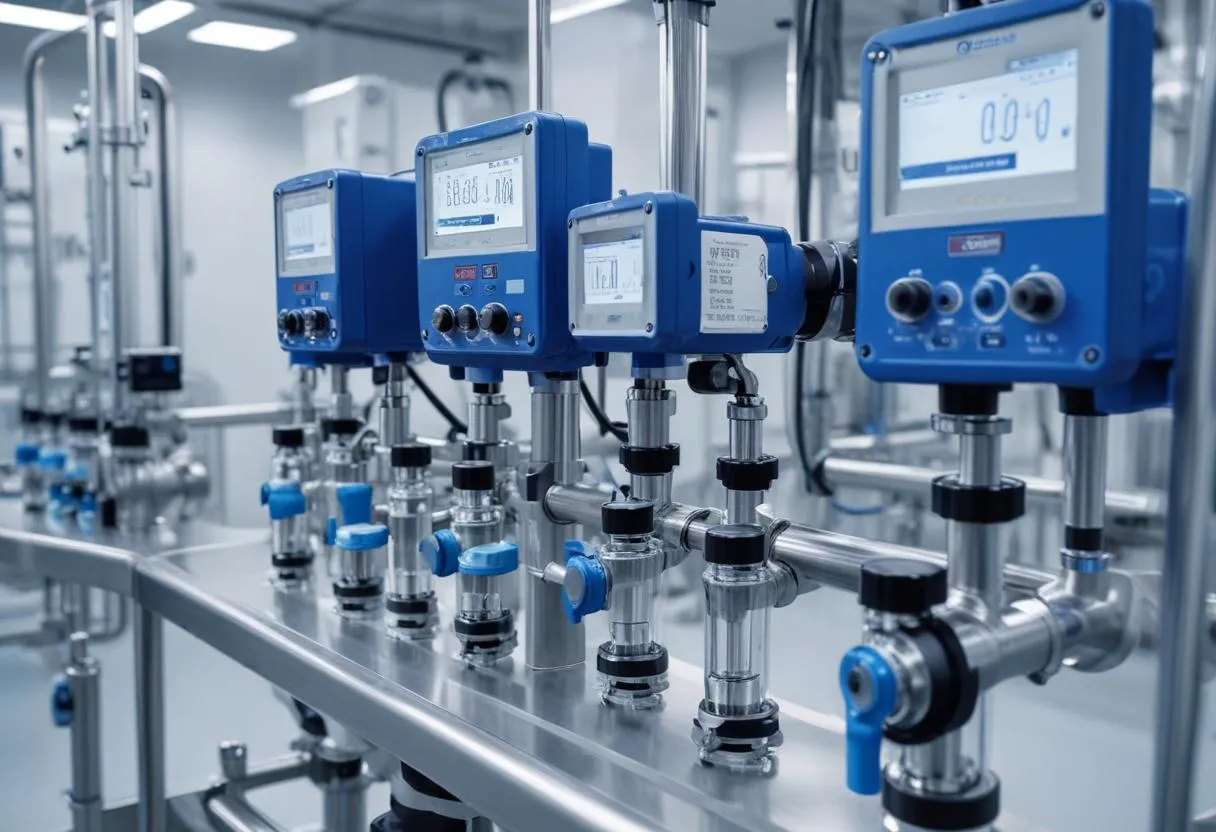 Smart pumps have significantly impacted modern industries by incorporating advanced sensors, data analytics, and automation to optimize performance and reduce operational costs. These innovative devices are engineered to precisely control the flow and pressure of liquids, gases, or slurries, which is crucial in a variety of industrial applications such as chemical processing, water treatment, and oil and gas production.
Smart pumps have significantly impacted modern industries by incorporating advanced sensors, data analytics, and automation to optimize performance and reduce operational costs. These innovative devices are engineered to precisely control the flow and pressure of liquids, gases, or slurries, which is crucial in a variety of industrial applications such as chemical processing, water treatment, and oil and gas production.
One of the primary advantages of using smart pumps is their ability to enhance energy efficiency. By using intelligent algorithms to adjust pump operations based on real-time conditions, these pumps consume less power compared to traditional ones. For instance, in systems that require varying flow rates, smart pumps can automatically reduce their speed when demand decreases, resulting in significant energy savings.
Another significant advantage is the improvement in process reliability and maintenance. Smart pumps are equipped with sensors that can monitor various parameters like temperature, pressure, and flow rate. This capability allows for predictive maintenance as the system can alert operators before a component fails, thereby avoiding downtime and expensive repairs.
The following table summarizes key advantages provided by smart pumps in industrial applications:
| Advantage | Impact |
|---|---|
| Energy Efficiency | Reduces operational costs by optimizing power consumption |
| Process Reliability | Improves uptime and extends the lifecycle of equipment |
| Maintenance Optimization | Enables predictive maintenance, reducing unexpected failures |
| Operational Flexibility | Adjusts to varying process demands automatically |
| Data Analytics Integration | Utilizes collected data for better operational insight and decision-making |
- Operational flexibility is another key benefit. Smart pumps can adapt seamlessly to changing operational conditions, a feature particularly useful in industries where production needs fluctuate. This adaptability not only ensures consistent product quality but also optimizes the use of resources.
- Moreover, the integration of data analytics enables more informed decision-making. The capability to log and analyze historical performance data helps in refining processes and predicting future needs, which in turn can lead to innovations in product development.
In summary, the technological advancements embodied in smart pumps provide these machines with capabilities that far surpass those of traditional pumps. This revolution not only enhances operational efficiencies and reliability but also contributes to substantial cost savings and better resource management in various industrial settings. These machines, with their advanced features and functionalities, are indeed redefining standards in industrial operations, making them indispensable in today’s market.
Key technologies behind smart pump functionality
Smart pumps incorporate a variety of cutting-edge technologies to offer heightened efficiency, reliability, and intelligence in their operations. Below, we delve into the essential key technologies that enable these advanced features in smart pump functionality.
Sensors and Monitoring Systems
The backbone of smart pump technology lies in its sophisticated sensors and monitoring systems. These components continuously assess critical parameters such as pressure, temperature, vibration, and flow rates. By monitoring these metrics, smart pumps can detect anomalies early, prevent failures, and maintain efficient operations.
- Pressure sensors: Monitor the pressure within the pump system to ensure it operates within safe limits.
- Temperature sensors: Detect overheating, which can be an early sign of malfunction.
- Vibration sensors: Identify unusual vibrations that could indicate wear or damage.
- Flow sensors: Ensure that the flow rate matches the system’s requirements, adjusting operations dynamically.
Control Systems and Automation
Advanced control systems are integral to smart pumps, enabling automatic adjustments in response to the data collected by sensors. These systems utilize algorithms and machine learning to optimize performance, adapt to changing conditions, and minimize energy consumption without human intervention.
Connectivity and Integration
Integration with broader industrial systems through Industrial Internet of Things (IIoT) connectivity is a significant feature of smart pumps. This connectivity allows pumps to communicate data to centralized control systems, where it can be used for comprehensive analysis, remote monitoring, and control. Here are the primary technologies facilitating this integration:
- Wi-Fi & Ethernet: For connecting devices within close proximity to share real-time data.
- Bluetooth and NFC: Used for near-field or less permanent setups, enabling quick data transfer and adjustments.
- Cloud platforms: Enable data sharing and monitoring across different geographic locations, enhancing scalability and remote management capabilities.
Software and Data Analytics
The software that powers smart pumps analyzes the immense volume of data generated by the sensors. This data is valuable for understanding usage patterns, predicting maintenance needs, or even alerting staff about issues in real time. Predictive algorithms help to estimate when maintenance should be performed to prevent unplanned downtime, thereby extending the life of the equipment.
Energy-Efficient Designs
Smart pumps are often designed with energy efficiency in mind, incorporating features like variable frequency drives (VFDs) which adjust the motor speed based on the required load. This precision ensures that the pump uses only the energy necessary for the task, thus conserving energy and reducing operational costs.
The integration and synergy of these technologies transform standard pumping systems into dynamic smart pumping solutions. By automating processes and enabling detailed monitoring and control, these pumps significantly enhance operational efficiency and reliability across various industrial sectors.
Case studies: Success stories from various sectors
 The transformative impact of smart pumps is vividly illustrated through various success stories across different sectors. Here are three case studies that exemplify how these advanced systems are revolutionizing industry practices, enhancing efficiency, and enabling substantial cost savings.
The transformative impact of smart pumps is vividly illustrated through various success stories across different sectors. Here are three case studies that exemplify how these advanced systems are revolutionizing industry practices, enhancing efficiency, and enabling substantial cost savings.
Case Study 1: Pharmaceutical Manufacturing
A major pharmaceutical company faced challenges managing the precise dosages required in drug production, an essential factor for maintaining product quality and compliance with strict industry regulations. The implementation of smart pumps equipped with high-accuracy flow sensors and real-time monitoring capabilities allowed them to achieve significantly higher precision in fluid handling and dosage measurements. As a result, the company not only improved its compliance with regulatory standards but also reduced wastage of expensive materials. The smart pumps’ predictive maintenance features further minimized downtime, enhancing productivity substantially.
- Outcome: Reduced material waste by 20% and improved production uptime by 15%.
- Technologies Deployed: Flow sensors, real-time analytics software, and predictive maintenance algorithms.
Case Study 2: Wastewater Treatment Facility
A municipal wastewater treatment facility was struggling with high energy costs and inefficient water processing. By integrating smart pumps into their systems, they were able to optimize the water treatment process and manage variable flow rates more effectively, adapting to daily fluctuations in wastewater volume. The smart pumps’ energy-efficient features, such as variable frequency drives, played a pivotal role in reducing the plant’s energy consumption.
- Initial Challenge: High operational costs due to energy inefficiency.
- Solution: Installation of smart pumps with VFDs and connectivity to central monitoring systems.
- Outcome: Energy costs reduced by 30%, with improved processing capacity and environmental compliance.
Case Study 3: Oil and Gas Industry
In a sector where reliability and safety are paramount, one oil and gas company leveraged smart pumps to enhance these aspects substantially. The deployment of these pumps equipped with robust sensors and connectivity features allowed for real-time data analysis and system-wide visibility. This real-time insight enabled swift responses to critical situations such as pressure drops or potential leaks, significantly reducing the risk of accidents and environmental hazards.
| Challenge | Solution | Benefit |
|---|---|---|
| Enhancing system reliability and safety | Smart pumps with enhanced monitoring and control capabilities | Reduced downtime by 25% and improved safety measures |
These diverse case studies underscore the versatility of smart pumps in adapting to various industrial needs, from precision in pharmaceuticals to safety in oil and gas, and efficiency in wastewater management. Through the deployment of these intelligent systems, industries are not only able to achieve higher operational efficiency but also significant cost reductions and improved safety standards. This paradigm shift towards smart pump technologies is setting new benchmarks for industrial operations globally.